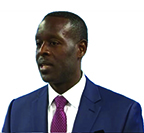By Bobby R. Henry, Sr.
In a recent engagement that could signify a turning point for education within Broward County, Superintendent Dr. Howard Hepburn’s conversation with approximately 30 Black ministers’ sheds light on his forward-thinking approach to tackle longstanding challenges head-on. Dr. Hepburn’s comprehensive dialogue on the topics ranging from new policies on cell phone usage, acceleration of students, intervention, and enrichment programs, to the reimagining of community engagement through partnerships, outlines a blueprint that seems poised to redefine educational standards within the district. Yet, amidst these promising developments, the conversation also surfaced critical areas that necessitate immediate attention and action, particularly in the domains of faculty diversity, school safety, and the psychological impacts of technology restrictions on students.
At the heart of Dr. Hepburn’s strategies is a commitment to address the multifaceted needs of the school district. The initiative to repurpose five schools, potentially leading to closures, is an acknowledgment of the pressing need to revitalize underperforming institutions. This move, while fraught with challenges, signifies a willingness to undertake difficult decisions that prioritize the long-term educational welfare of the student population. Moreover, the recovery of the use of schools and a strategic approach to marketing underscore a keen understanding of the importance of schools as central to community vitality and engagement.
The focus on accelerating students, coupled with targeted intervention and enrichment programs, reflects an educational philosophy that recognizes the diverse talents and needs within the student body. By advocating for a robust partnership with families and the community, Dr. Hepburn envisages a holistic educational ecosystem that nurtures and supports students beyond the confines of the classroom. This vision is both commendable and necessary, especially in an era where the involvement of a broad spectrum of stakeholders is crucial to educational success.
Dr. Hepburn’s acknowledgment of the challenges in timely addressing work orders and family needs, along with his candid discussion on board relations, presents a leader who is transparent about the hurdles yet optimistic about collaborative solutions. His assertion, “We can’t do it alone,” is a rallying call for community involvement and support in the educational process, stressing the importance of collective action in achieving transformative outcomes.
However, the conversation also brought to light pivotal issues that demand immediate attention. The need for a more diverse teaching staff, specifically the inclusion of more Black male educators, is a critical concern that impacts student engagement and representation. An incident at Rock Island Elementary that went unreported underscores a grave concern about school safety, highlighting the necessity of adequate measures to protect students. Additionally, the psychological effects of the cell phone policy call for a delicate balance between technological access and educational integrity, an area that requires careful consideration and management.
Dr. Hepburn’s personal engagement, illustrated by his visit to a student for a photo opportunity, may seem minor in the grand scheme but is indicative of a leadership style that values direct interaction and responsiveness. It is an approach that, if consistently applied by the Board to broader policy and operational challenges, could significantly enhance trust and community support for the district’s objectives.
In conclusion, Dr. Hepburn’s engagement with the Black ministers and his wide-ranging policy initiatives signals a commendable ambition to improve Broward County schools. However, the path forward is laced with complex challenges that require nuanced strategies and deepened community relationships. As the district grapples with these issues, the guiding principle should remain steadfastly focused on creating an inclusive, safe, and enriching learning environment for all students. The success of such an undertaking will not solely be Dr. Hepburn’s legacy but a shared victory for the entire Broward County community.

